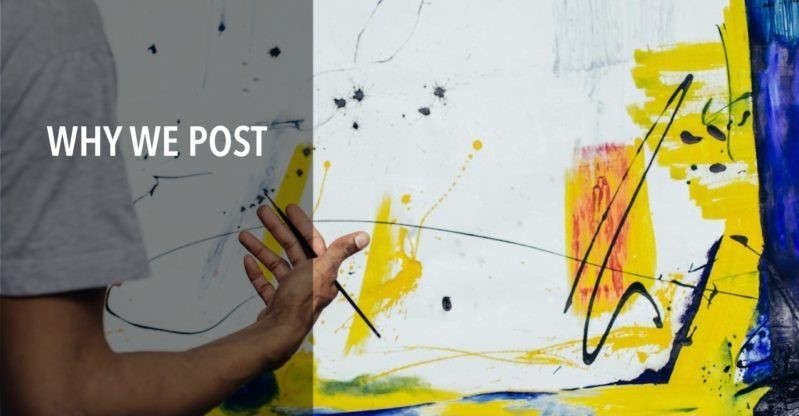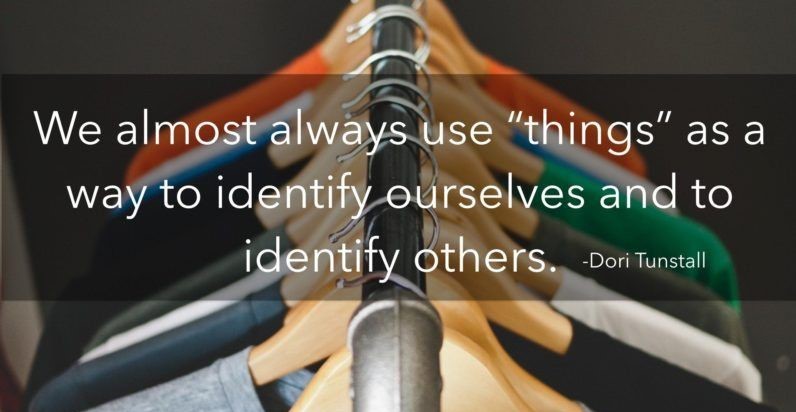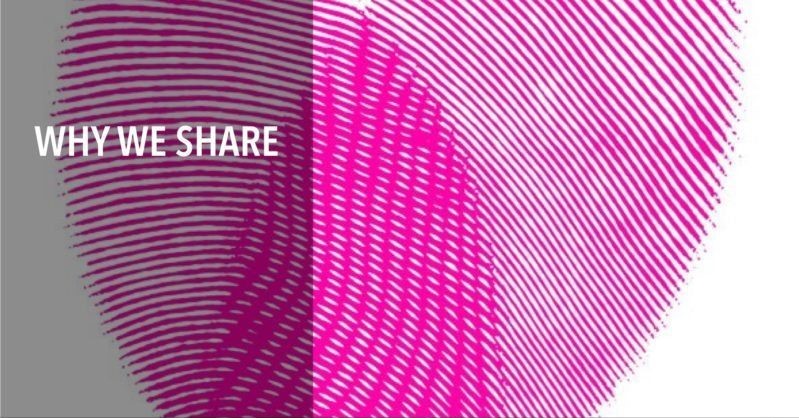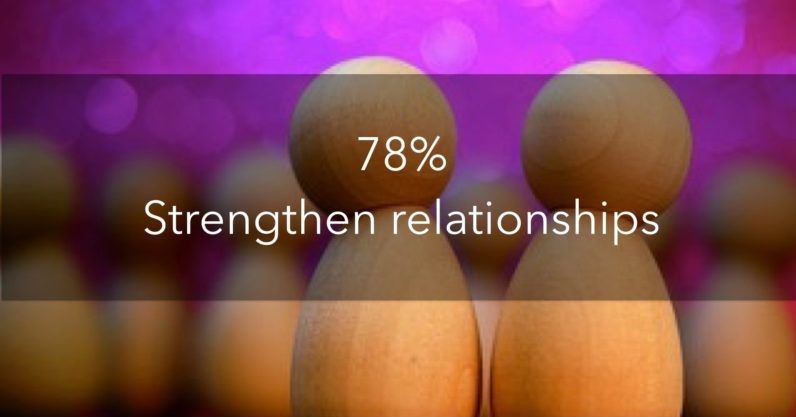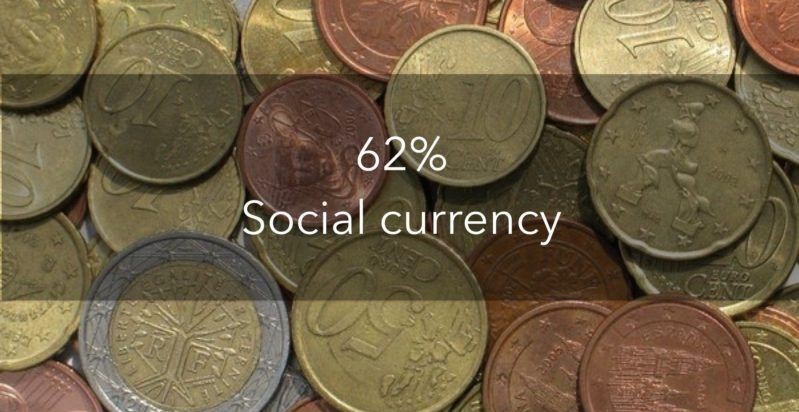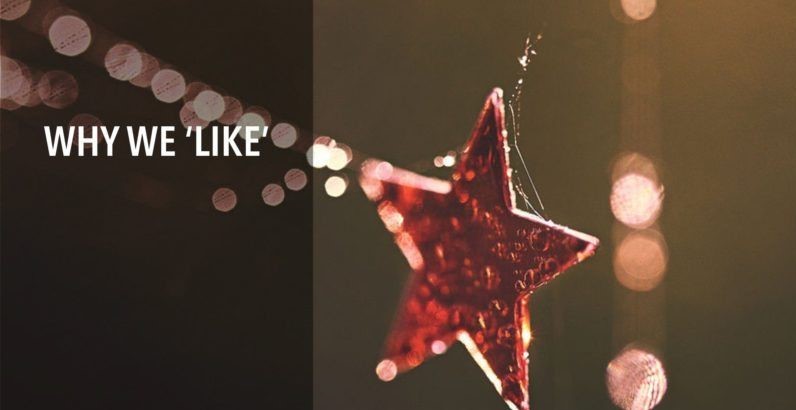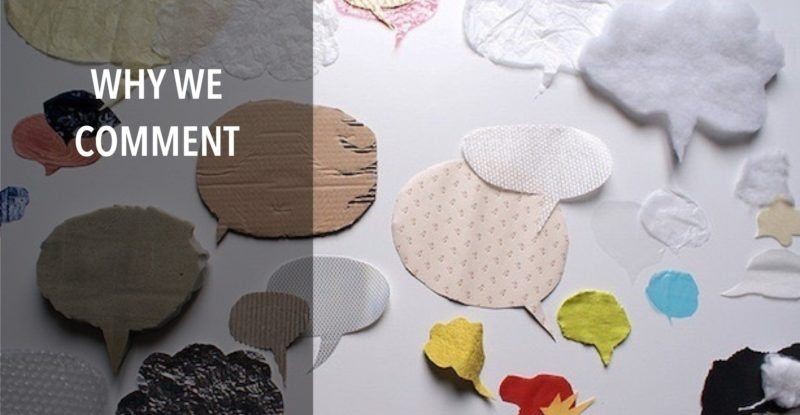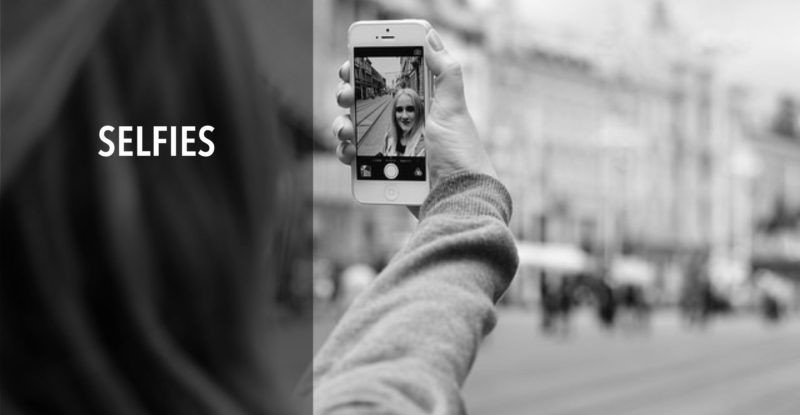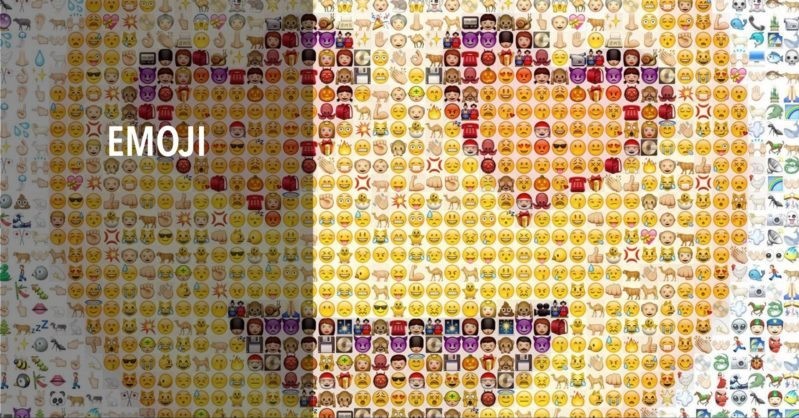The Psychology Of Social Media - The Psychology Of Why People Post, Like, Share, And Comment On Social Media
Understanding the psychology of social media and why people engage online is the first step to making better experiences, stronger relationships, and much better marketing content.
Author:Suleman ShahReviewer:Han JuOct 06, 202262 Shares1.4K Views
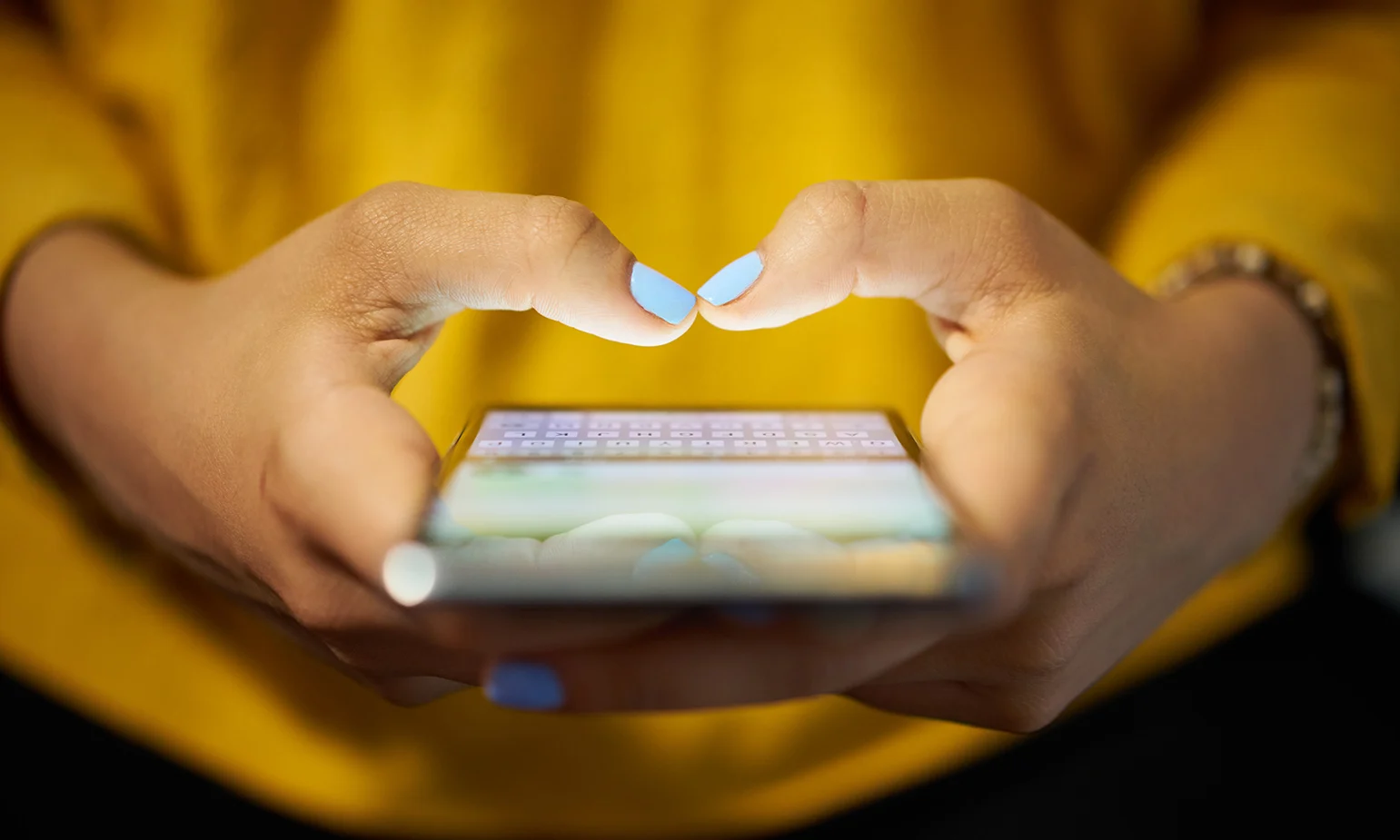
Have you ever wondered why some things on social media spread like wildfire?
Even though you might not believe it, there is a lot of sciencebehind why people like, comment, and share online.
Understanding the psychology of social mediaand why people engage online is the first step to making better experiences, stronger relationships, and much better marketing content.
Social Media And The Brain
Neurologically, social media affects different brain functions.
Social media contains many stimuli that can trigger different reactions, so its effects on the brain vary.
Social media attention affects multiple brain regions.
According to Social Cognitive and Affective Neuroscience, receiving likes on Facebook, Twitter, or Instagram activates the striatum and ventral tegmental area.
When viewed from a different angle, this seems complicated and involved.
The ventral tegmental area (VTA) determines the body's reward system.
When social media users get positive feedback (likes), the VTA triggers dopamine receptors.
Another MRI study found similar results.
Viewing photos with many (vs. few) likes increased neural activity in reward processing, social cognition, imitation, and attention.
Social media is so closely tied to individuals' reward systems that users should be aware of its power and potential for abuse.
Gambling and narcotics can similarly control the brain's reward system.
These parallels can help social media users avoid pitfalls.
Social media stimuli can affect decision-making and emotional processing outside of reward systems.
In another study of adolescent brain activity, researchers found that emotional and sensory processing areas reacted when participants felt excluded.
This study examined the effects of "online social exclusion" on teens' brains.
When social media users are excluded from online groups, chats, or events, these brain regions react directly.
Social media and brain PARTS research is in its early stages.
There's still a lot to learn about how social media affects the brain.
Social Media Actions - Why People Post, Share, Like And Comment
Next, let's look at some of the most important things we do online and see how they affect us psychologically.
Why People Post On Social Media
It's not a secret that people love to talk about themselves.
About 30–40% of all human speech is about people talking about themselves.
On social media sites, though, that number jumps to about 80%.
That's a really big jump!
Why?
Face-to-face conversations are messy and emotional. We don't have time to think about what to say, so we have to read each other's faces and bodies.
When you're online, you have time to build and improve.
Self-presentation is the act of putting yourself in the way you want to be seen.
So strong is the feeling you get from how you present yourself that looking at your own Facebook profile can make you feel better about yourself.
For marketers, it's also interesting that the most common way you try to show who you are is by buying things and getting things that show who you are.
Think about clothes, games, music, and even the logo on your laptop.
Because of this, people can feel a lot of strong feelings about their favorite brands.
In an experiment, people were shown two kinds of photos: the logo for a brand they liked and pictures of their partners and best friends.
Their bodies were as excited by the logo as they were when they looked at a picture of their best friend.
Brands and the things people own are a big part of who they are.
When a brand can come up with aspirational ways for its community to interact with it, it not only opens up social media opportunities but also gives itself a chance to do more than just get likes.
Why People Share On Social Media
Considering how much people like to talk about themselves, what would make them share something that belongs to someone else?
You have a natural urge to tell other people about things.
Even before you do anything, the thought of sharing turns on the reward centers in your brain.
Self-presentation, Strengthening Relationships
First, it has to do with how people see themselves. Sixty-eight percent of people say they share to help others understand who they are and what they care about.
But the main reason we share is to help each other:
People say they share because it helps them keep in touch with other people.
Experiments have shown that the parts of the brain that think about other people are the best predictors of how ideas spread from one person to another.
This means that content made for social media doesn't have to be good for a big group or a medium group.
It only needs to be interesting to one person.
Social Currency
And when you share the right kind of content, you gain social currency—your stock goes up.
62 percent of people say that when people like what they post on social media, they feel better about themselves.
How can brands make money on social media?
By having interesting things to say.
Murray Davis, the book's author, says that all interesting content is "an attack on the world that people take for granted."
Things that are interesting, like "the dress," make you question what you think you know. They shake us up.
Why People Like On Social Media
People love to like on platforms like Facebook, which has more than 2 billion monthly active users.
Since Facebook added the "Like" button, it has been used more than 1.13 trillion times, and that number is growing every day.
You do this because you want to keep your connections with other people.
When you "favorite" and "like" each other's posts, you make the relationship better and make you feel even closer.
You also start a chain reaction.
People who help you feel like they owe you something, even if it's just a small thing.
You want to make things fair.
A sociologist sent Christmas cards to 600 people he didn't know, and he got 200 cards back.
That's the power of giving and getting.
On Instagram, too, when someone tags you or sends you a direct message, you feel like you have to do the same.
And if someone likes your profile, you'll probably feel a little compelled to do something in return, like share something or sign up for an email list.
Why People Comment
Most marketers think that talking to customers is a very important thing to do.
That interaction, or as much engagement as possible, is what builds long-term advocacy.
So it comes as a surprise to learn that customers don't agree.
Only 23% of the more than 7,000 people surveyed said they have a relationship with a brand.
Only 13% of those who did said that they had a relationship with the brand because they talked to it often.
Consumers said that having similar values was much more important to a relationship than having a lot of contact with a brand.
This doesn't mean, though, that comments aren't important.
In fact, they can be very different. This is called "shared reality," and it means that your whole experience of something changes depending on whether and how you share it with other people.
85 percent of say that reading what other people have to say about a topic helps us understand and make sense of things.
This means that comments can really make us think differently, and science backs this up.
- A study of comments on newssites showed that just attacking the author without giving any facts is enough to change how we feel about a subject.
- On the other hand, polite reviews make a brand seem more honest and good, even if they are negative. When users saw politely negative reviews, they were willing to pay about $41 more for a watch than when the reviews were taken away.
Basically, any online comment about your business shows a customer what kind of business you are.
Even though it doesn't make sense, that's how our brains work.
This means that being active in the comments section of your blog and in customer reviews of your product is important, not just for the person you're responding to, but for everyone who is part of the shared reality of comments and reviews.
Social Media Phenomena - Selfies, Emoji And Nostalgia
So far, we've only scratched the surface of what's interesting and unique about social media.
Let's learn more about a few things that marketers find interesting.
Selfie Craze
In the past, portraits were about status and how they could control how people saw them.
They help you figure out who you are today.
The "looking-glass self" is a psychological idea that says you can never really see ourselves. Instead, you need to see ourselves in the eyes of others to know who we are.
Selfies also work because people notice faces more than anything else.
- On Facebook and other social media sites, the profile picture is the first thing people look at.
- On Instagram, photos with people's faces are 38% more likely to get likes and 32% more likely to get comments.
- Eye-tracking studies show that when we're online, we look at the eyes of the people we see on the screen.
Faces can also make people feel empathy.
In an experiment, headshots of patients were added to their doctors' files. When doctors saw photos of their patients, they were better able to treat them.
There are many ways for brands to use selfies to their advantage, and we've listed them all here.
Power Of Emoji On Social Media
Most people don't know it, but when they talk face-to-face, they copy each other's expressions.
This is called "emotional contagion," and it's a big part of how they connect with each other.
Using emoticons and emoji, you can recreate this important part of empathy online.
Today, 92 percent of people in the U.S. use stickers, emoticons, or emojiswhen they talk online, and 10 billion emoji are sent around the world every day.
The most popular emoji: ?
And there is a strong connection between using emojis and being popular on social media.
- An analysis of more than 5 years of social media shared by influential and well-known people found that they all used emoji.
- And a study where people chatted online with different types of experts found that people thought the experts were friendlier and better at their jobs when they used emoticons.
There are lots of fun ways to use emoji in your marketing efforts.
Some brands, like Ikea, Coca-Cola, Burger King, and Comedy Central, have even made their own branded emoji for their fans to share.
Evan Wray at Swyft Media, which has worked on many of these branded emoji campaigns, says that users see these in a really unique way—as a way to express themselves, not as ads.
Social Media Nostalgia
This is where nostalgia comes in, and this yearning for the past can be a great way to market on social media in the 21st century.
Nostalgia is a part of all cultures, and it makes us feel like we belong to a group and are loved and cared for.
Because of how we feel, we think about money in a different way.
People are more likely to give money to others and are willing to pay more for products when they are asked to think about the past.
You're speeding up nostalgia and making people want it more and more these days.
All you need is a time period that your audience will remember fondly.
Stickers and notebooks from the 1980s and 1990s by Lisa Frank are now for sale at Urban Outfitters.
(Yes, the '90s are old now; nostalgia moves that fast.)
You can use Facebook insights, demographic, and persona information to choose a time period, which you can then tie into your writing or social media posts with references to that time.
Understanding The Change In Self Concept From Using Social Media
Social media gives people different ways to show who they are.
But the ability to make multiple accounts and choose what goes on their profiles has given users a chance to create new personas that has never been seen before.
These new digital identities can be the same as, different from, or add to the real identities of users.
How Social Media Shapes Identity
To get a better idea of how social media shapes people's identities, it's important to look at how social media works as a whole.
In the article "Psychology of Social Media: From Technologyto Identity," it was said that hybridized social media networks have "given rise to 'interreality,' a new social space that is more malleable and dynamic than previous social networks."
With these new tools, people can now:
- Change who they are in society.
- People can change how other people see them by editing their social media profiles.
- Use tools from social media to connect with more people.
- Have virtual identities that hide who they really are.
Because of the power that comes with new social media technology, users can shape their identities in some ways with much more freedom.
But the researchers said that social media tools should only be used by older, more mature people because "if people who are too young use it irresponsibly, they can cause problems that sometimes even time can't fix."
From the point of view of social media psychology, this new ability to shape one's own identity is both empowering and scary.
Users can build their identities on social media in a way that is true to who they are and what they like, and they can also make up whole new identities for social media.
This power has a lot of great benefits and bad side effects.
The Effects Of Self-Perception On Social Media
When social media users compare themselves to others, their self-image suffers.
When they interact, they often compare themselves.
Matthew Pittman and Brandon Reich, media experts and academics, found that people can sharpen their identities on Instagram and Pinterest.
Quantitative results suggest that LONELINESS MAY DECREASE as a result of image-based social media use.
Text-based media seems ineffective."
In image-oriented social media environments, some users have more confidence and self-perception.
Social media can motivate people with negative self-images to create new identities.
Tricking others into thinking they're someone else is the goal.
Catfishing is a social media dating practice.
Scientific American reports that users may feel pressured to alter their height, weight, and age to present their ideal self and maximize their attractiveness.
Social media has pressured users to lie or fabricate their identities to be more desirable.
These pressures go beyond dating to other social media interactions.
Some users' vulnerabilities can lead to a "FALSE FACEBOOK-self."
Researchers found that people with low social media self-esteem were more likely to create alternate, sometimes conflicting Facebook personas.
Social Pressures To Fit Into Social Media Groups
Social media's acceptance by various groups is a major draw.
This group-focused social media direction has benefits and drawbacks, as do most aspects.
Social media users can connect with similar-interest groups around the world.
Find niche hobbies, popular pastimes, and general interests.
This ability to belong to different groups benefits people from smaller or distant communities psychologically.
Psychology Today's Art Markman says group membership can boost a person's motivation.
Even a simple relationship between people, like sharing a birthday or being randomly assigned to a group, can increase feelings of warmth and motivation, he said.
Social media allows people to form groups for general and specific interests, improving their productivity.
Too much group membership can change how a social media user thinks and acts.
Media Psychology found that when users stick to their social media groups, they mimic their behavior.
This mimicry creates a social media bubble that's reinforced by group engagement.
Mental Health Benefits From Social Media
Unexpected benefits span demographics.
Adriana M. Manago and Lanen Vaughn found young adults have many opportunities for FRIENDSHIP AND HAPPINESS.
Younger social media users can create stronger bonds with friends due to easy access to information and interests.
These connections give users more independence and autonomy, which improves critical thinking and decision-making.
Over time, these feelings of community and self-worth will improve users' mental health.
Painted Brain, which promotes mental health through advocacy, art, and business, outlined how social media can positively affect users' mental health.
Social media has many positive effects on mental health, including:
- Similar-interest socialization.
- Healthy lifestyle motivations.
- Group support.
- Relationship maintenance and building.
- New ways of thinking.
Mental Health Consequences From Social Media Use
Social media has tangible benefits, but it's been criticized for its toxic effects on mental health.
Teens online face cyberbullying, trolls, toxic comparisons, sleep deprivation, and fewer face-to-face interactions, according to licensed clinical social worker Katie Hurley.
In a culture that emphasizes always being online, these issues can overwhelm users and cause anxiety.
These negative effects on teens' mental health show the need for better social media models from parents, educators, and other role models.
According to a journal article, Facebook use correlates with HIGHER DEPRESSION LEVELS.
The more time subjects spent on Facebook, the worse their mental health became, and they felt worse about themselves when comparing their profiles to others'.
Igor Pantic's article echoed the finding.
Long-term use of Facebook may be linked to depression, he said.
Comparing one's life to others only worsens mental health.
People Also Ask
How Does The Media Influence People Psychology?
Media influence, such as whether seeing violence in the media makes people more violent, how portrayals of gender roles affect children's ideas of what it means to be a woman, man, or other gender, and how media messages can be made to get people to donate to charity or act in a certain way.
What Do Psychologists Think About Social Media?
Experts in mental health say that the likes, comments, and shares on social media often do more harm than good.
Experts in mental health say that the likes, comments, and shares on social media often do more harm than good.
What Does Posting On Social Media Say About You?
Your social media posts can give people clues about your personality, political views, how you spend your free time, what your priorities are, how you feel about yourself, and even where you are at any given time.
Conclusion
From golf tournaments and film festivals that go viral to the most popular TV shows on social media, brands and businesses today are always trying to find and make content that people want to share.
By thinking about the psychological reasons why people do things online, you'll be able to find a way to consistently market content that works.
Jump to
Social Media And The Brain
Social Media Actions - Why People Post, Share, Like And Comment
Why People Post On Social Media
Why People Share On Social Media
Why People Like On Social Media
Why People Comment
Social Media Phenomena - Selfies, Emoji And Nostalgia
Understanding The Change In Self Concept From Using Social Media
Mental Health Benefits From Social Media
Mental Health Consequences From Social Media Use
People Also Ask
Conclusion

Suleman Shah
Author
Suleman Shah is a researcher and freelance writer. As a researcher, he has worked with MNS University of Agriculture, Multan (Pakistan) and Texas A & M University (USA). He regularly writes science articles and blogs for science news website immersse.com and open access publishers OA Publishing London and Scientific Times. He loves to keep himself updated on scientific developments and convert these developments into everyday language to update the readers about the developments in the scientific era. His primary research focus is Plant sciences, and he contributed to this field by publishing his research in scientific journals and presenting his work at many Conferences.
Shah graduated from the University of Agriculture Faisalabad (Pakistan) and started his professional carrier with Jaffer Agro Services and later with the Agriculture Department of the Government of Pakistan. His research interest compelled and attracted him to proceed with his carrier in Plant sciences research. So, he started his Ph.D. in Soil Science at MNS University of Agriculture Multan (Pakistan). Later, he started working as a visiting scholar with Texas A&M University (USA).
Shah’s experience with big Open Excess publishers like Springers, Frontiers, MDPI, etc., testified to his belief in Open Access as a barrier-removing mechanism between researchers and the readers of their research. Shah believes that Open Access is revolutionizing the publication process and benefitting research in all fields.

Han Ju
Reviewer
Hello! I'm Han Ju, the heart behind World Wide Journals. My life is a unique tapestry woven from the threads of news, spirituality, and science, enriched by melodies from my guitar. Raised amidst tales of the ancient and the arcane, I developed a keen eye for the stories that truly matter. Through my work, I seek to bridge the seen with the unseen, marrying the rigor of science with the depth of spirituality.
Each article at World Wide Journals is a piece of this ongoing quest, blending analysis with personal reflection. Whether exploring quantum frontiers or strumming chords under the stars, my aim is to inspire and provoke thought, inviting you into a world where every discovery is a note in the grand symphony of existence.
Welcome aboard this journey of insight and exploration, where curiosity leads and music guides.
Latest Articles
Popular Articles
